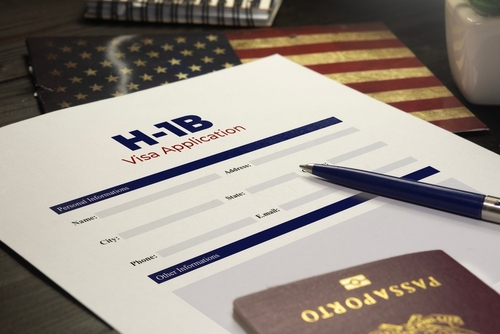
Most employers know that if a group health plan provides mental health or substance use disorder (MH/SUD) benefits in any of six specified classifications, the plan must provide MH/SUD benefits in all specified classifications in which the plan provides medical or surgical benefits.
Additionally, the 2008 Mental Health Parity and Addition Equity Act (MHPAEA) requires plans to ensure that the financial requirements and treatment limitations imposed on MH/SUD benefits are no more restrictive than those imposed on medical or surgical benefits. While the U.S. Department of Labor’s Employee Benefits Security Administration (EBSA), which enforces employer-sponsored plans’ compliance with the MHPAEA, has issued multiple compliance navigation guides, the truth is that the guidance issued to date has lacked sufficient detail and failed to account for the actual circumstances necessary to be helpful to employers. Meanwhile, EBSA is investigating employer plans for compliance, publicly naming those that it deems fall short, and encouraging plan participants to demand written disclosures of details that are largely unavailable.
Road and Navigation Systems Are Under Construction
EBSA has issued multiple requests for comments and guidance over the past couple of decades in connection with the MHPAEA. EBSA’s guidance includes 2013 final regulations, a self-compliance tool, 2019 FAQs (in which it listed examples of nonquantitative treatment limitations), and 2021 FAQs (in which it announced that it would begin investigating plans for compliance with the comparative analysis documentation requirements that became effective that year for nonquantitative treatment limitations).
One thing all of the prior guidance has in common is a failure to acknowledge that the employer has virtually no way to assess whether its group health plan complies with the mental health parity requirements. Except in rare circumstances, employers don’t select network providers, don’t negotiate reimbursement rates, don’t determine what preauthorization requirements will apply for what covered services, don’t know what’s medically necessary, and don’t know what claims have been approved or denied or why. For employers, the road to compliance is like driving through a construction zone without navigation and with multiple speed traps and caution signs posted in a foreign language. Employers need a roadmap and a way to navigate the many obstacles and construction zones on the route to compliance.
The recently issued proposed regulations are somewhat helpful because they provide more specific information about what data plans must collect and consider in order to design and apply nonquantitative treatment limitations. This includes evaluating historical data, comparing in- and out-of-network utilization rates and provider reimbursement rates – information the employer has to extract from the plan’s third-party administrator.
While EBSA acknowledged the challenges employers face in collecting and evaluating the data needed to determine compliance, it still expects plans to show the analysis undertaken and the steps taken to mitigate differences in access to MH/SUD benefits compared to medical and surgical benefits.
EBSA’s annual reports to Congress, which describe the agencies’ findings in enforcement investigations and highlight the agencies’ primary concerns regarding mental health parity, are potentially helpful. For example, chief among the concerns highlighted is network adequacy. The agency cites what’s been reported as a growing disparity in in-network reimbursement rates between MH/SUD providers and medical and surgical providers, which drives down MH/SUD providers’ network participation and therefore increases the cost of MH/SUD services for patients.
How Employers Can Navigate
It’s obvious that federal agencies are still gathering the information they think is relevant and necessary to provide meaningful guidance and enforcement. For now, employers should develop and document a compliance program, using what is available to show a good-faith effort to comply with the MHPAEA, including the nonquantitative treatment limitation comparative analysis requirement.
Any such compliance program should include these steps:
Determine which vendors to contact to gather the necessary documentation and information. In addition to the insurer or third-party administrator (TPA) for the group health plan, this may include a behavioral health administrator and/or pharmacy benefit manager.
Develop a list of specific questions for the insurer/TPA and other vendors that will enable the employer to gather the information needed to determine whether the plan complies with the MHPAEA. It is helpful to reference the DOL’s self-compliance tool to develop an effective list of questions and to use its framework to document the compliance review effort. One should incorporate the data elements in the recently issued proposed regulations. If the service provider has conducted and documented a compliance review itself, this will save the employer an enormous amount of time and other resources.
Document all communications with the insurer/TPA and other vendors, particularly those from whom one requests assistance gathering the data necessary to ensure MHPAEA compliance.
Analyze the data provided by the insurer/TPA and other vendors, both on a granular level and in the aggregate, using available EBSA guidance to help spot disparities. Develop follow-up questions to the insurer/TPA and other vendors regarding any coverage disparities between MH/SUD and medical and surgical benefits, the application of utilization review to MH/SUD benefits, and the reasoning behind MH/SUD claims denials.
Identify areas of concern and pursue corrective action. Retain all communications with the insurer/TPA or other vendor involved.
Update service agreements to ensure ongoing cooperation from TPAs and other service providers in evaluating compliance, correcting compliance issues, and making required disclosures.
Bear in mind that MHPAEA compliance is an ongoing trip and should be revisited annually and whenever EBSA issues meaningful additional guidance. Employers or employer groups interested in helping shape the final regulations have until Oct. 2 to submit written comments on the proposed regulations.
Monique Warren is an attorney with Jackson Lewis in White Plains, N.Y. © 2023. All rights reserved. Reprinted with permission.
Reach Out
Don’t hesitate to reach out to us to discuss your specific needs. Our team is ready and eager to provide you with tailored solutions that align with your firm’s goals and enhance your digital marketing efforts. We look forward to helping you grow your law practice online.
Our Services:
Blog Post Writing
We do well-researched, timely, and engaging blog posts that resonate with your clientele, positioning you as a thought leader in your domain.
Content Writing
Beyond articles and content for blogs, we delve into comprehensive content pieces like eBooks, and case studies, tailored to showcase your expertise.
Website Content Writing: First impressions matter. Our content ensures your website reflects the professionalism, dedication, and expertise you bring to the table.
Social Media Management
In today’s interconnected world, your online presence extends to social platforms. We help you navigate this terrain, ensuring your voice is consistently represented and heard.
WordPress Website Maintenance
Your digital office should be as polished and functional as your physical one. We ensure your WordPress site remains updated, secure, and user-friendly.
For more information, ad placements in our attorney blog network, article requests, social media management, or listings on our top 10 attorney sites, reach out to us at seoattorneyservices@gmail.com.
Warm regards,














